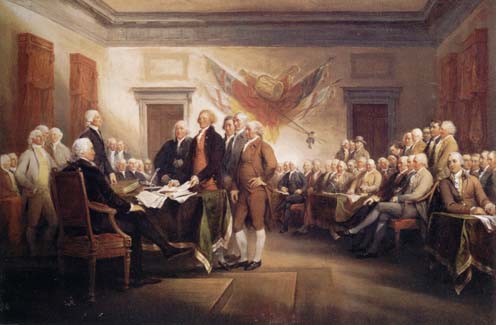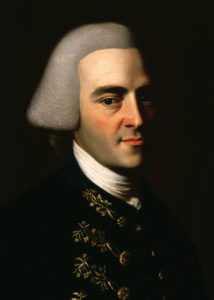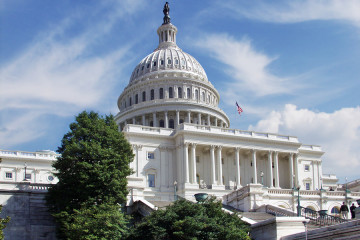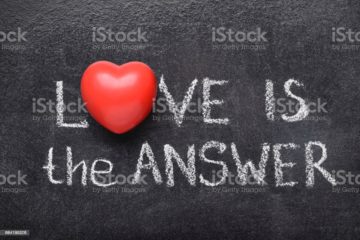Those Who Stood Up and Signed Part 4

I still remember how our Social Studies in high school drilled into our minds how the signers of the Declaration of Independence were risking their lives signing that document. That they were, yet they were not going to allow themselves to be bullied to by any music celebrity, actor, anyone who considered themselves “royalty”, or anyone regardless of their religious beliefs, sexual preferences, country of origin or gender.
Much like their world, in today’s world, standing up for a certain political view can get you seriously injured or killed. Neither side has a monopoly on peace or love. If you dare defy an anti-Trump protester one can get seriously hurt, injured, tortured on Facebook, or killed. The events in Charlotte, NC have shown us that that evil organization, the KKK is still active too.
I want us to better understand these 56 men who were willing to risk everything for their country. So, in the following weeks, I am going to tell you about them, in alphabetical order mostly. I am not sure how many weeks it is going to take. I guess it will be based on how much I can actually find out about them as individuals.
Most of the biographical information will be taken from The Society of the Descendants of the Signers of the Declaration of Independence which gives extensive bios of each of the signers. Here, I shall highlight some of the parts of their lives that showed their character and spirit.
Lyman Hall (4/12/1724-10/19/1790) was born in Connecticut to a Puritan family. He graduated from Yale with a degree in the ministry but had a short-lived practice as a minister. He committed some public sin and was found out. However, he repented and was allowed to continue in the ministry. But he decided that the life of a doctor was more appropriate for him. So he joined some congregationalists in the role of doctor, who journeyed to Georgia to spread the Gospel. It was there his wealth increased many times as there was a malaria epidemic. As his wealth increased, so did his political power. There were many British supporters in Georgia and there were many who supported “The Liberty Boys” and among them was Hall. He was elected to represent Georgia along with Button Gwinnet and George Walton. George Washington himself told Lyman Hall to move his family back to Connecticut during the war, but he moved back after it. He was then elected Governor of Georgia. “In the Rotunda of the National Archives Building nearby, there is a mural painting of a number of the signers by Barry Faulkner. Lyman Hall is shown in the top row, the third from the left.”
John Hancock (1/12/1737-10/8/1793)

the man with the biggest signature. His died when he was 7 so his uncle, Thomas Hancock raised him and Thomas was a 17th century Donald Trump. He was hugely successful in business and taught John how to make money and appear successful too. Thomas and his family were very well respected in Boston. John was raised to respect and honor the British. He first met John Adams at Harvard. However, when Thomas Hancock died, Thomas left the business to John and John’s rebellious inclinations started to rise as he saw the British impose many taxes on the colonies, taxes which cut into his profits. He was also inclined to support rebellion when pro-Independence colonists started looting and vandalizing the homes and businesses of those who did not support independence. He, Samuel Adams, and others were charged with treason but narrowly escaped in a midnight run. He was elected to the Continental Congress to represent Massachusetts. He signed his famous signature with grandiosity and pomp as fitted his personality. When he returned to Mass. after the war, his fame had raided to mythic proportions. He was elected Governor of Massachusetts 8x. When the Constitution was being debated, he was brought in on a stretcher (due to his illnesses, 5 years before his death) and said “….As the Supreme Ruler of the Universe has seen fit to bestow upon us this glorious opportunity, let us decide upon it, appealing to him for the rectitude of our intentions, and in humble confidence that he will yet continue to bless and save our country.”
Benjamin Harrison (4/7/1726-4/24/1791) was born of a Virginian family of great wealth. His maternal grandfather owned over 300,000 acres! He went to William and Mary college where he met Thomas Jefferson and Patrick Henry. However, due to a family tragedy, he had to return home and resume the family business when his father died. His family was historically anti-British. He even had a relative that was imprisoned for 6 years for voicing his anti-British opinions. With his economic wealth he was elected to the Continental Congress. He read the first draft of the Declaration of Independence to the assembled representatives. He was always making joking and good-natured and teased Elbridge Gerry that since he was so small and light, Mr. Gerry would take a much longer time to die on the gallows than would he. During the war, he led the Virginia Militia and was elected 3x to be Virginia’s governor. “In the Rotunda of the U.S. Capitol is the famous painting by John Trumbull “The Declaration of Independence.” Benjamin Harrison is shown prominently, seated in the left foreground wearing a rose colored coat.”
John Hart (1711-5/11/1779) was a representative from Hopewell, New Jersey who signed the Declaration of Independence. He was taught at home by his parents and family and himself. Not a lot is actually known regarding his early life. But it is known that he got married and became involved in real estate around 1740. He also became involved in various business business ventures. As he was successful in these ventures, he was elected to the Hunterdon County New Jersey Board of Chosen Freeholders in 1750 and later served as a Justice of the Peace. He was always a supporter of independence and happily signed the Declaration. He became especially anti-British when the British ravaged Hopewell, New Jersey. He was elected Speaker of the Assembly two times. The property he had left he gladly offered to George Washington to use for the war and he donated property to build a Baptist church.
“Benjamin Rush, a signer of the Declaration of Independence, described John Hart as “a plain, honest, well meaning Jersey farmer, with but little education, but with good sense and virtue enough to pursue the true interests of his country.”
Romans 12:2 Do not be conformed to this world, but be transformed by the renewal of your mind, that by testing you may discern what is the will of God, what is good and acceptable and perfect.
————————————————————W.







No Comment